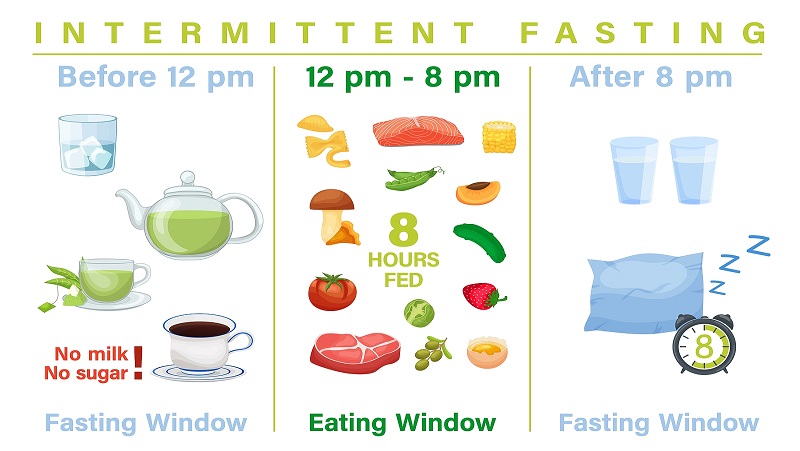Intermittent fasting has become popular because of its potential benefits not only in weight management but also in terms of health and longevity. The approach has been found to reduce insulin resistance, inflammation, and oxidative stress, and thus lower the risk of chronic diseases such as diabetes, heart disease, and cancer. As a result, the process may also help improve brain function, increase lifespan, and promote better overall health. However, it is essential to note that intermittent fasting is not merely about eating less. Instead, it’s about restricting your eating timeline and allowing the body to burn stored energy.
Studies have found that intermittent fasting could lead to weight loss when compared to calorie restriction. When the body undergoes fasting, insulin levels drop, leading to improved fat burning. The process also enhances metabolism by increasing the number of calories burned during the fasting period. IF also helps preserve muscle mass and supports lean body mass better than calorie-restriction diets. A study published in the American Journal of Clinical Nutrition found that intermittent fasting could improve cognitive performance and mental clarity too.
When starting IF, one must know the various approaches one can employ. The most common methods include the 16:8 method, where one fast for 16 hours and eats within an eight-hour window, and the 5:2 method, where one eats regularly for five days and restricts calorie intake to 500-600 calories two days a week. Other methods may include alternate-day fasting, where one fasts every other day and the OMAD, or one meal a day, which is self-explanatory.
It is essential to begin by easing into intermittent fasting, especially if it’s your first time. One method is to start with time-restricted feeding (TRF), where you have your last meal of the day by 6 pm, and then fast until 8 am the next day, which is roughly a 14-hour fasting period. You can then increase the period gradually.
Conclusion:
In conclusion, intermittent fasting is a practice that can positively impact our health and well-being, and recent scientific studies support this. Intermittent fasting has demonstrated potential benefits in weight management, improved insulin resistance, inflammation, and reduced oxidative stress. As with most changes towards a healthier lifestyle, it is vital to ease into the practice over time and seek professional guidance when necessary. While IF isn’t suitable for everyone and can have some risks, it’s worth exploring if you’re looking for a safer approach toward weight management and overall health.




